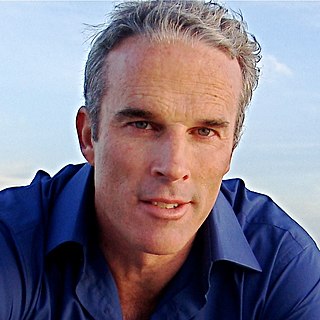A Quote by Maya Lin
I always give the analogy of the Earth at Night picture, of 7.3 billion of us, right? And everyone says, "Well, that's population." Well, if you took the entire world's population and you lived at the density of Manhattan proper - not a bad place to live - how much space do 7.3 billion people take up? The state of Colorado. At which point I end my lectures, because I want you to be thinking ... is this really a question of population, or is this a question of land use and resource consumption? And let's face it, the top 1.3 billion of us are doing all the damage. Sorry.
Quote Topics
Always
Analogy
Bad
Because
Billion
Colorado
Consumption
Damage
Density
Doing
Earth
End
Entire
Entire World
Everyone
Face
Give
How
How Much
I Want You
Land
Land Use
Lectures
Live
Lived
Manhattan
Much
Night
People
Picture
Place
Point
Population
Proper
Question
Really
Resource
Right
Says
Sorry
Space
State
Take
Thinking
Took
Top
Up
Us
Use
Want
Well
Which
World
Related Quotes
The collective shortfall of the 3.08 billion people (47 percent of world population) who, in 2005, lived below $2.50 per day was $507 billion per annum, which indeed comes to about two-thirds of the present US military budget. This gives us a rough sense of how much the eradication of poverty would cost.
I now say that the world has the technology - either available or well advanced in the research pipeline - to feed on a sustainable basis a population of 10 billion people. The more pertinent question today is whether farmers and ranchers will be permitted to use this new technology? While the affluent nations can certainly afford to adopt ultra low-risk positions, and pay more for food produced by the so-called "organic" methods, the one billion chronically undernourished people of the low income, food-deficit nations cannot.
At the beginning of the 20th century, there were less than 3 billion people on the earth, closer to 2 billion. By all measures that we can come up with right now,. with the lifestyle and consumption pattern of the Western industrial civilization, we can probably sustain about 2 billion people on this earth. We already have over 6 billion. China and India are aspiring to come on as industrial nations, aspiring to the lifestyle of the Western world, and it simply can't happen.
I think that humans are also set up to survive. We're not as small as rats, but we make up for that by being intelligent enough to make our own hiding places and to adapt to new habitats, even if they are changing very quickly. We have an enormous population, and can afford to lose billions of people without suffering very much as a species. Indeed, some would say losing five billion people would be good for the planet - I disagree with them, but can't deny that we would do just fine if there were two billion of us or even one billion.
I generally avoid over-population arguments. But there's no question we're in population overshoot. The catch is we're not going to do anything about it. There will be no policy. The usual suspects: starvation, war, disease, will drive the population down. There's little more to say about that really, and it's certainly an unappetizing discussion, but it's probably the truth. In any case, we're in overshoot and we face vast resource scarcities.








































